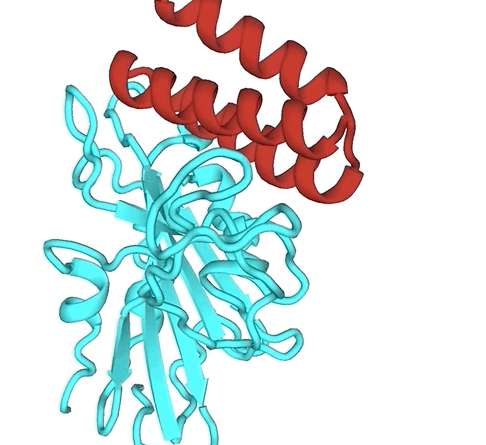The Breakthrough Prize Foundation announced $21.75 million in awards today for a variety of scientific achievements. One in particular is a tech/science crossover: A $3 million award to David Baker, whose work over the last 20 years has helped validate the idea that computers can help us understand and create complex molecules like proteins — and the latest such molecule may lead to new treatments for COVID-19.
Baker is the head of the Institute for Protein Design at the University of Washington, and for two decades has helped explore and define the field of computer-aided molecular biology. His lab developed the Rosetta software for modeling the immensely complicated folding and other interactions of proteins, and also the FoldIT distributed computing network for spreading the task around to eager citizen scientists.
As Bakers says: “We could wait another million years for the protein we need to evolve, or we could design it ourselves.”
The prize is specifically “For developing technology that allowed the design of proteins never seen before in nature, including novel proteins that have the potential for therapeutic intervention in human diseases.” This acknowledges Baker and his colleagues’ role in the technology as a whole, but his latest work may prove his most widely consequential: a bespoke molecule made specifically to blunt the sharp spikes of the novel coronavirus.
It’s the molecular equivalent to putting a scabbard on a sword. The only problem is that the sword doesn’t come with the scabbard — you have to make it yourself. And that’s a lot more complicated than it sounds, as there are so many factors in how the amino acids, atoms and bonds interact between the two. Fortunately that’s exactly the problem Baker and his team have been building a platform to solve.

“We have developed general design methods for creating proteins from scratch that are complementary in shape and chemical properties to arbitrary target sites,” Baker told TechCrunch. “We simply pointed these at the virus spike!”
The “de novo” proteins created and tested by the team bind strongly to the spike protein and don’t let go — hence their name, “hyperstable minibinders.” It’s no miracle cure, but it could be the start for a therapeutic approach that disables the virus’s method of spreading — once it’s been properly tested, of course.
“The designed protein described in the Science paper published today is looking very promising,” Baker said. “We are doing pre-clinical experiments to determine whether it could be an effective drug as is or needs to be modified.”
He also noted that “FoldIT players and Rosetta@home participants have been making important contributions to our anti-COVID efforts,” so good job if you’ve been donating computer cycles to the project.
You can see the many other prizes awarded this year, in topics such as mathematics and fundamental physics, at the foundation’s news post here.
The Breakthrough Prize Foundation was originally born from the efforts (and coffers) of Yuri and Julia Milner, and the prize for Life Sciences is co-sponsored by Sergey Brin, Priscilla Chan and Mark Zuckerberg, Pony Ma and Anne Wojcicki.






























Comment